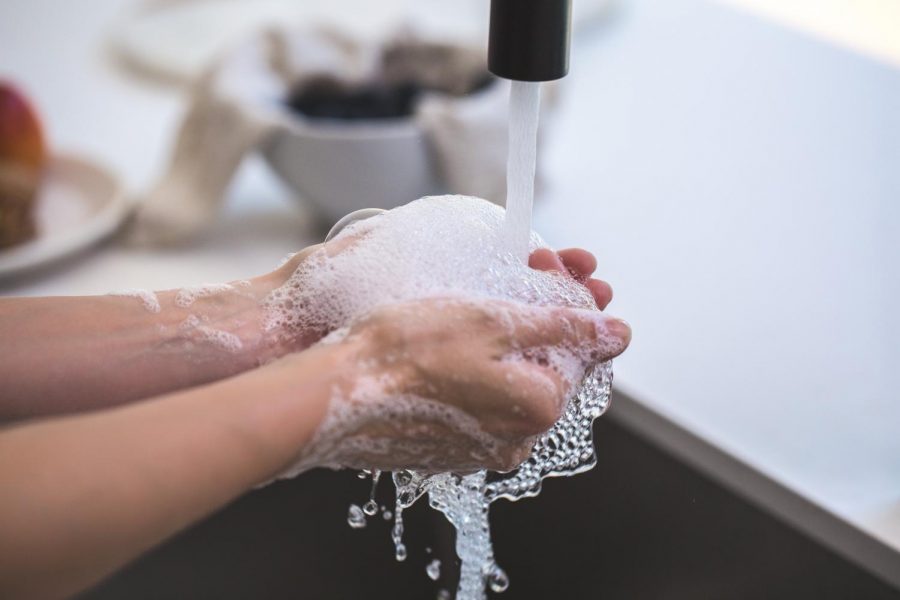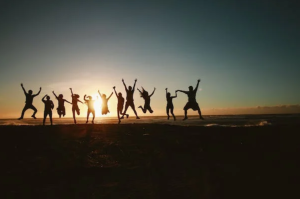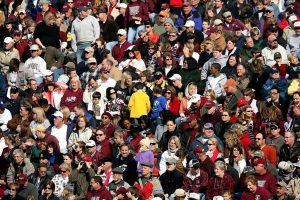How COVID-19 Is Affecting People With Mental Illnesses
April 23, 2020
Due to the ongoing COVID-19 pandemic, the anxiety of an uncertain future with the added factor of isolation has led to an upsurge in contacting mental health services. The coronavirus pandemic has caused millions of people around the world to isolate and question what is happening to our future. Humans are hard-wired to know what is happening and when in order to notice the things that feel threatening to us. While this reaction serves to protect us, it can also cause us to feel anxious and overwhelmed. For those with mental illnesses, this pandemic has taken an even greater toll on their emotional well-being.
For people with anxiety disorders and OCD, social distancing has given them more time to worry about the future. A user on a Reddit forum for people with OCD describes, “I try [to] do things to help like [taking] walks, [distracting] myself, and I’m currently seeing two separate mental health professionals and am on meds but nothing seems to be working. Every morning I wake up panicked, and as a result, depressed from being so panicked.” The actions we take—wiping every surface, sweeping hand sanitizer bottles off shelves—were once considered irrational fears. These irrational fears are now becoming rational, which is what terrifies people with mental health conditions. Tam Sanders, a 28-year-old interviewed by NBC News, stated “Suddenly everyone is like you. Suddenly everyone feels they need disinfecting wipes and hand sanitizer as much as you feel you do, every single day of your life.”
People with anxiety disorders seek certainty and validation. They question, am I stressing too much? Where is the line between being responsibly cautious and being obsessive? As reported by the HuffPost, Martha with OCD says she “became obsessed with the news, scrolling continuously, panicking about having to take her young son out of the house. She thought she was behaving normally for the situation until she realized she had started acting out physical rituals that she thought she’d long abandoned.” They worry that while the rest of the world moves on when the pandemic ends, they will still be stuck in an unhealthy mindset.

The coronavirus has not only brought back the old habits of people with anxiety disorders, but for people with eating disorders as well. According to the National Association of Anorexia Nervosa and Associated Disorders, eating disorders result in the most deaths out of any mental illness. Recently, memes relating to “gaining the COVID-19 after eating all my snacks” have been spreading across social media. Jokes about “quarantine 15” being the new “freshman 15” on Twitter reinforce the idea that gaining weight is a bad thing. Though memes can provide entertainment in challenging situations, these jokes can be triggering for the 30 million people across the US dealing with an eating disorder. Many ultimately end up reverting to their previous coping strategies in order to make some sense of their overwhelming lifestyle. Melissa McCormick, a licensed mental health counselor specializing in eating disorders, shares with Allure magazine, “There might be obsessing and [compulsive thoughts]. ‘If I use eating disorder behavior, I will feel better. It will lessen the anxiety.'” Rather than feeling in control of your life, engaging in these behaviors will only make you lose control.
Everyone’s well-being is impacted by being trapped at home, whether one suffers from a mental illness or not. People experiencing stigmas related to weight gain are more likely to gain weight and take up harmful actions towards weight control and less likely to regularly exercise. It’s our job to be conscious of what we post online. Socially distance yourself not only from the people outside of your house, but also from the negative jokes about gaining weight.

















































































































































